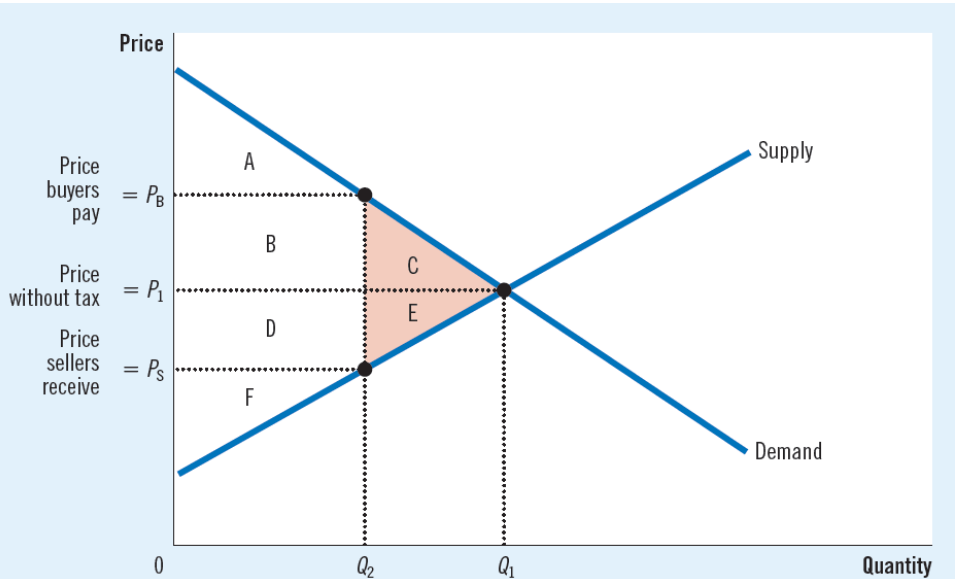W11: market efficiency and failures
1/16
There's no tags or description
Looks like no tags are added yet.
Name | Mastery | Learn | Test | Matching | Spaced |
|---|
No study sessions yet.
17 Terms
welfare economics
How the allocation of resources affects economic well-being
consumer surplus
the amount a buyer is willing to pay for a good minus the amount the buyer actually pays for it ( low price raises this )
benefit that buyers receive from a good
( is as good ) as the buyers themselves perceive it
producer surplus
the amount a seller is paid for a good minus the seller’s cost of providing it; higher price raises this )
allocative efficiency
Resource allocation that maximizes the total surplus received by all members of society is economically efficient
market equilibrium efficiency
allocate the supply of goods to the buyers who value them most, as measured by their willingness to pay → allocate the demand for goods to the sellers who can produce them at the lowest cost
why markets are not efficient ( distorted )
imperfect competitetion, externalities, nature of goods
negative externalities for market efficiency
higher social cost, adverse affect on 3rd party;
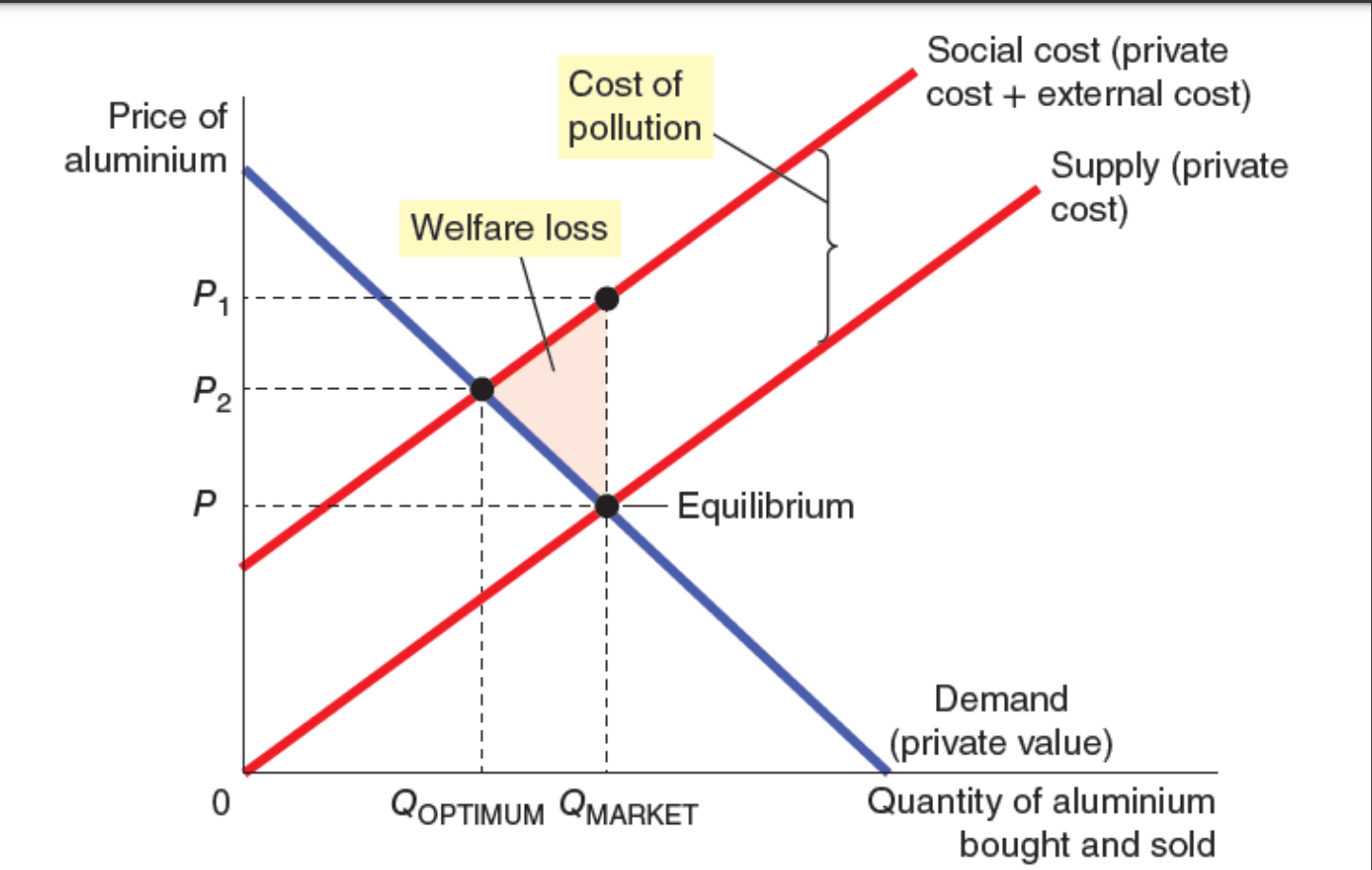
Laissez faire
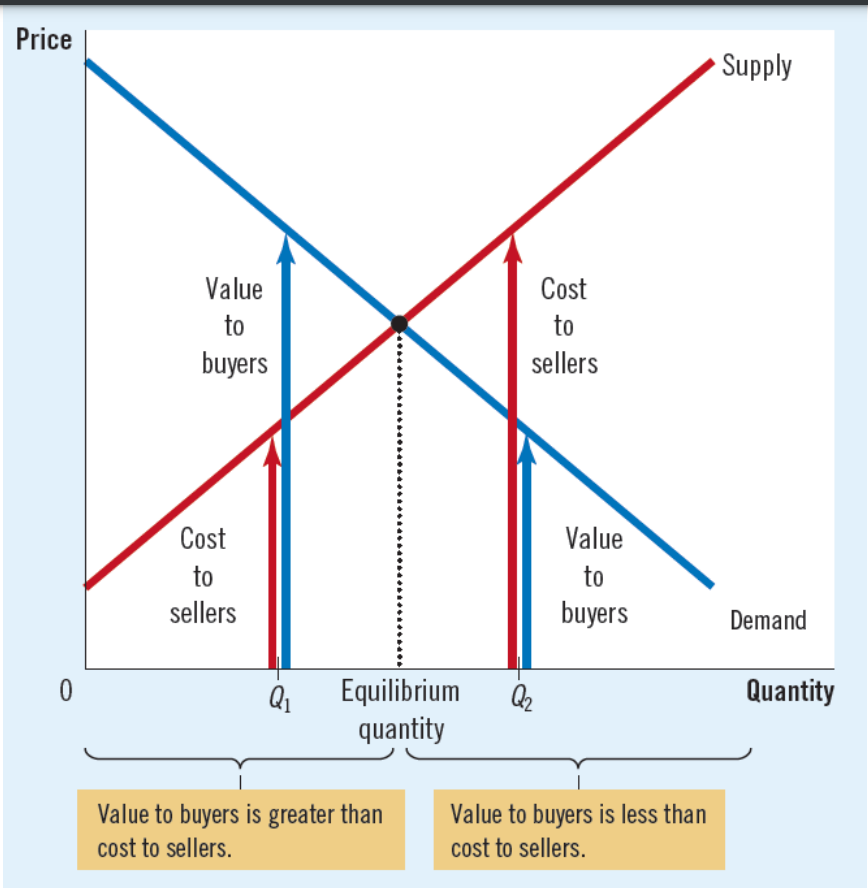
positive externalities for market efficiency
benifical to 3rdp, social value higher than private
dealing with high social cost
taxes ?? tax should reflect social cost
internalizing externalites in ME
altering incentives so that people take account of the external effects of their actions. taxes and subsidies
soultion for negative externalities in ME
private- social norms, charity,
public- regulation, corrective taxes( aka Pigouvian taxes aka excises), tradable pollution permit
government failure
benefits of government decision-making accrue to a small number of people but the costs are spread across large sections of the population
welfare side of taxation
A tax on a good places a wedge between the price that buyers pay and the price that sellers receive
The quantity of the good sold falls
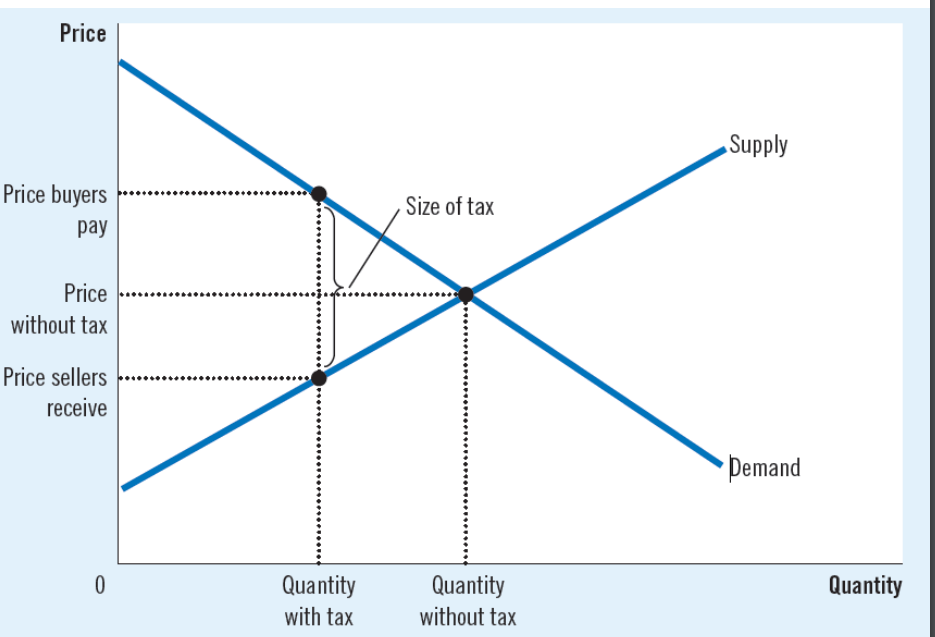
tax revenue
area of the rectangle between the supply and demand curves
T * Q (tax T, the quantity sold Q)
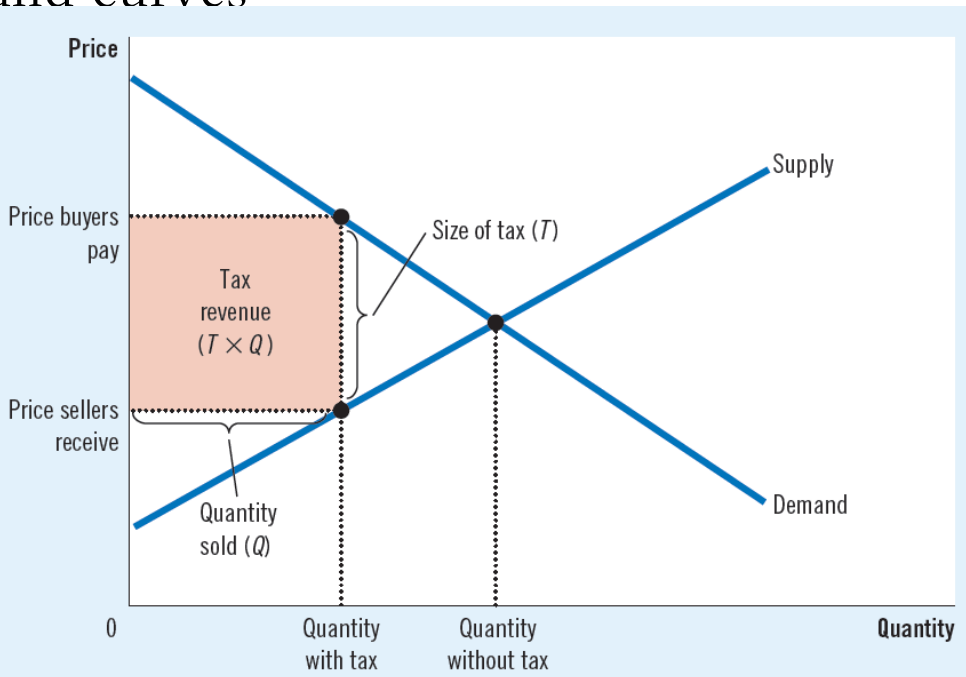
deadweight loss of taxation
economic inefficiency resulting from taxes that distort market transactions, leading to a reduction in overall economic welfare.
